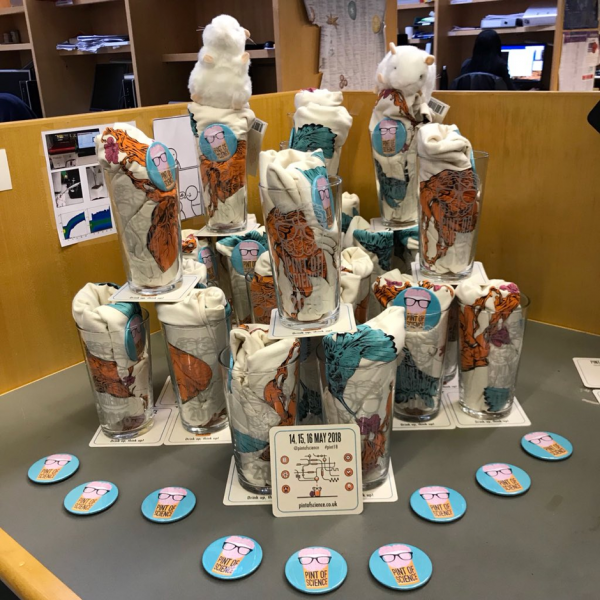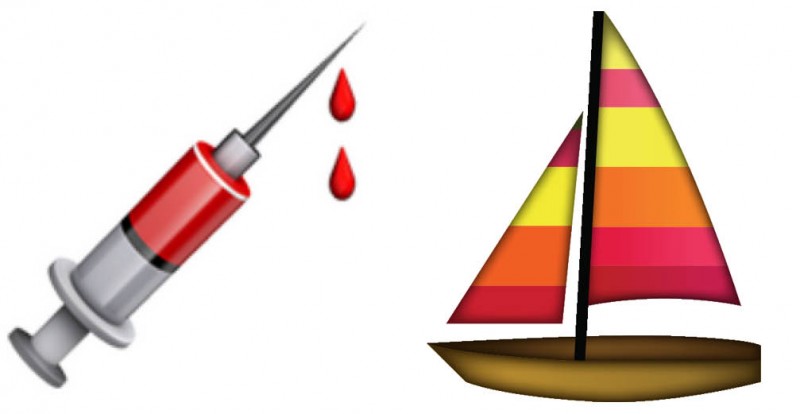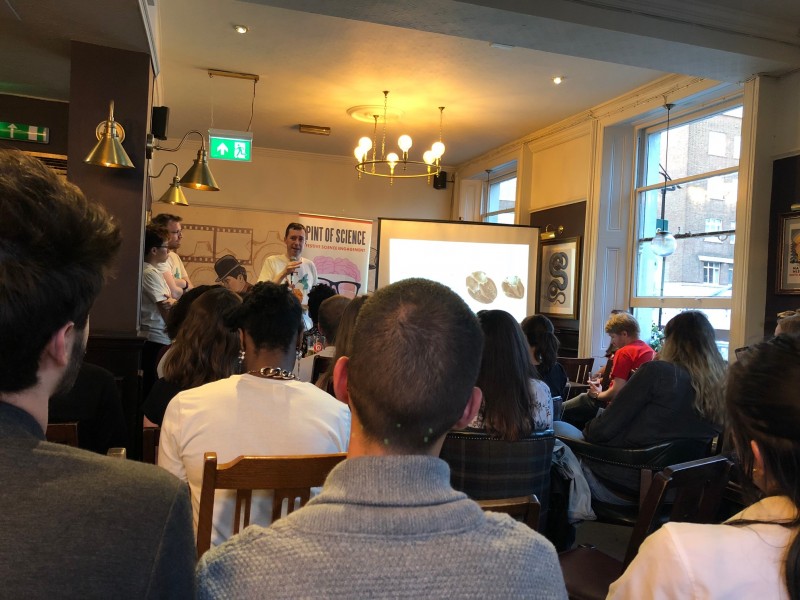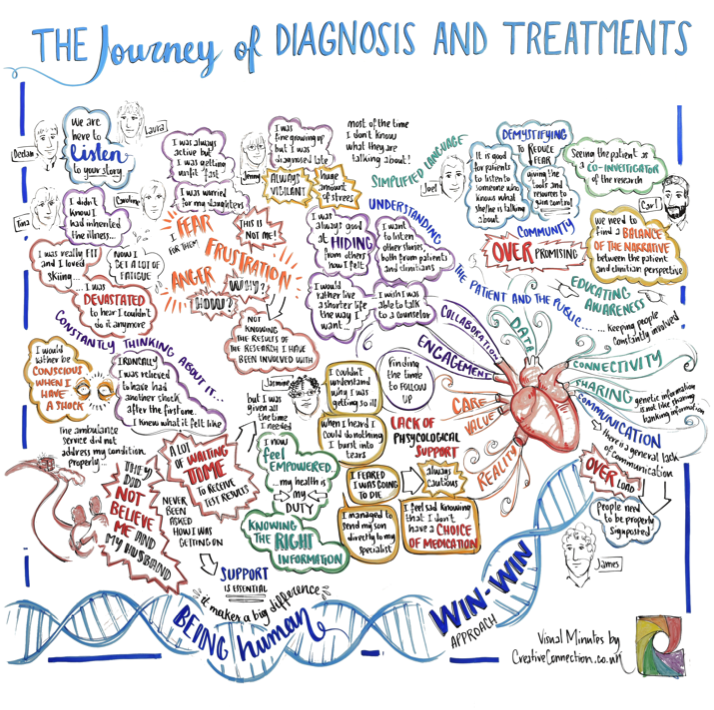By Sophie Arthur
May 16, 2018
Time to read: 4 minutes

On Monday 14 March, Dr Declan O’Regan, Head of MR Facility at MRC LMS took part in the Pint of Science Festival 2018, alongside Dr Neil Dufton, Research Associate, National Heart and Lung Institute, Imperial College London.
The event, Emojis to AI: getting to the heart of the problem, which explored how technology is advancing health research and how we can utilise it to better understand and prescribe treatments, took place at The Zetland Arms, South Kensington.
Neil started the event off, discussing the use of emojis in breaking down barriers to understanding health research and helping the public and patients get to grips with jargon associated with both anatomy, conditions of the heart and functions of cells. Neil got the audience to complete an association quiz that he had developed, guessing key biological terms such as the two emoji symbols below: (*answer at the bottom of the article)

By the end of the talk/quiz there was a definite feeling that this is an area to be looked at in more depth and that it could be an incredibly valuable tool for working with audiences that may not be able to communicate through language alone. Suggesting emojis may have a potential role in the communication of health and science to new audiences in the future.
Following a short break Declan introduced the audience to the potential power of using AI as a tool in predicting both likelihood/time to death and preferential treatment for dilated cardiomyopathy (DCM), from MRI images of the heart.

He took us through heart disease risks, aptly pointing out (given the setting), that deaths related to drinking alcohol are much more likely to be from injury and that small quantities of alcohol can actually have a positive impact on heart health. He spoke about current imaging approaches of heart disorders and how AI technology works to detect and map these. He emphasised that in order to continue advancing the technology, enhancing its application “we want lots of (data) and we want it now” and that “the next step is to see how the technology fares in ongoing hospital trials.”
The audience were eager to find out more, asking questions such as “would patients actually want their future to be predicted by computers?” and “if this option does exist where does it leave radiologists, will their roles become redundant?” Declan shared the hope and potential that AI technology could offer both patients and clinicians, “if you have a greater knowledge of your future you can make informed choices on it”, “this technology is different as currently we aren’t able to give predictions but we do give detailed readings of scans and are able to provide forecasts, this technology is an addition and will provide predictions alongside the knowledge we offer. It will allow us to help a patient live as long as possible and although it may replace some radiologists it can’t replace us looking at complex trauma and providing detailed analysis. It adds value by personalising the experience and providing some answers to patients who may be worrying about whether they might need to think about having a defibrillator fitted or whether their diagnosis might have a direct effect on their child’s heart health.”

Having captured the audience’s minds and hearts, we caught up with Declan post-event who shared his thoughts about the experience, “It was a fantastic opportunity to reach a wider audience to talk about our research on machine learning in imaging. It’s especially important to appreciate people’s interest and concerns in using AI in healthcare research as we develop this potentially transformative technology.”
Today is the final day of the Pint of Science Festival and there are still some tickets left for a variety of events across the UK, most of which will give you the chance to get your hands on this year’s Pint of Science souvenirs.
*Blood vessel